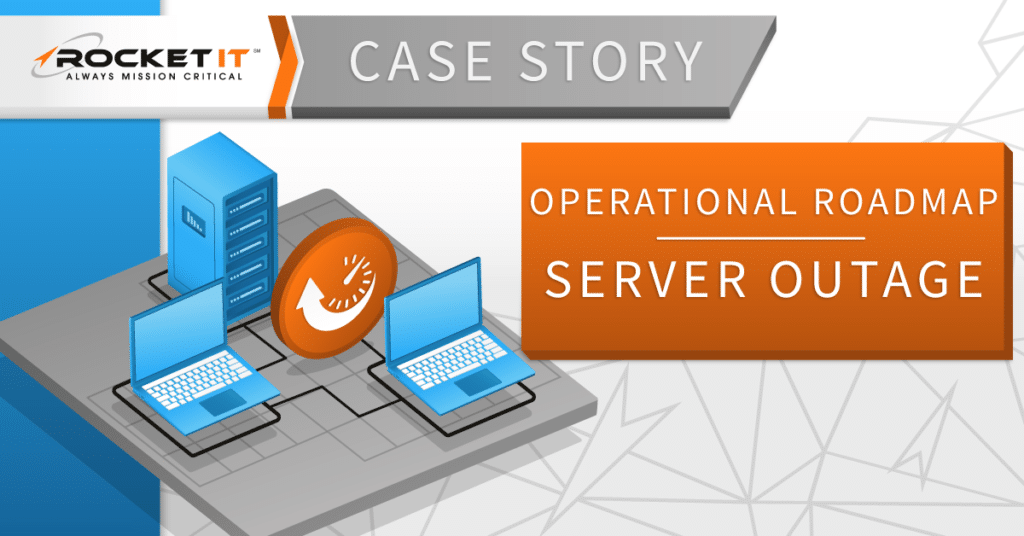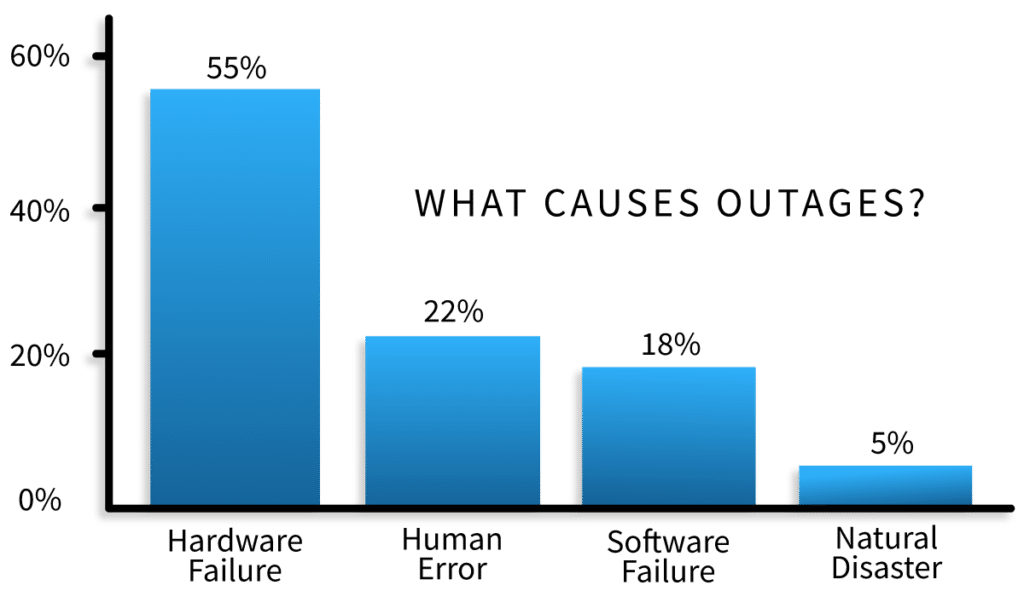Case Story | Server Outage

The global pandemic hit the healthcare industry hard, forcing many organizations to change the norms of physician patient interaction. Through this chaos, many facilities had to rethink their IT policies to accommodate remote work. While healthcare organizations seek to provide preventative care for human bodies, it’s important that leaders of these facilities take equal care of their IT networks, programs, and systems.
You’re in the Outpatient Healthcare Industry
Imagine you provide healthcare services for mental health, addiction, and developmental disability for the state of Georgia. Your business works hard to raise awareness of behavioral health issues and seeks to provide support and resources for the community you serve. You know that while most of your business is conducted face-to-face, your employees need a robust email system to easily communicate with one another. That said, you’re regulated by the Health Insurance Portability and Accountability Act (HIPAA), so you must take extra care in meticulously following protocol when handling and storing sensitive information.
Risks in Your Industry
While browsing new ways to better abide by HIPAA, you come across an alarming article that both your organization’s data and livelihood may be at risk. Despite your team fully investing in cybersecurity applications to prevent hackers from stealing mission critical data, you learn that the primary culprit of data loss is not what you expected. Although security initiatives, such as end-point detection, application whitelisting, and phishing testing help to protect digital information, they’re no match for the 77 percent of data loss that occurs from hardware failures and human errors every year. While you brush the information off for now, a faint feeling of worry remains in the back of your mind.

Over the Next Few Days…
A few days after discovering new variables that threaten your team’s data, your facility’s primary server reaches its fourth birthday without anyone batting an eye. And why should you? You’ve never experienced any crashes or significant glitches since it was installed. But what you don’t know is that this server is not only reaching the end of its life, no one has installed necessary updates, patches, or diagnostics over the last few years to maintain its virtual and physical health.
While inputting a patient’s vital information, your computer suddenly disconnects from the network. You worry that all the files you were working on are lost forever. Moments later, your computer reconnects, and you continue helping your patient, writing it off as a random occurrence.
Fast forward to the next day when you experience the same exact thing, but this time it takes longer for your computer to start and your email is completely inaccessible. You have a report due in a couple of hours, so you get in touch with your internal IT department, and they suspect that it’s your device at fault. Soon after giving you this diagnosis, more colleagues reach out to IT with similar issues. Within a matter of minutes, the entire organization has confirmed that they’re unable to access their email inboxes. Noting that email is a mission-critical component of your business, your organization is facing a major disruption; contributing to the $918,000 dollars that is lost each year to hardware issues in the healthcare industry alone. And while you may not be losing $5,600 per minute like larger operations in your industry, it’s likely that your organization’s productivity and revenue will take a massive hit if the issue is left unresolved for much longer.

You Contact Rocket IT For Help
Although your internal IT department is doing everything they can to diagnose the issue and offer a timely fix, they’re short-staffed and inexperienced with these issues. Knowing that you need a resolution as soon as possible, you call Rocket IT for help. Within minutes of gaining access to your network, Rocket IT engineers discover that your primary server not only experienced one hard drive failure, but two.
“While one failure would have left this team online with limited capabilities, two hard drive outages were bound to result in their email services becoming completely inaccessible,” said Rocket IT Systems Engineer, Tyler Priest. “To prevent lapses in productivity, it’s important to catch a hard drive failure as soon as possible.”
A Step in the Right Direction
Although this event could have been avoided, like 36 percent of organizations, your internal IT department lacked the technical understanding to deploy preventative technologies. Knowing this, Rocket IT’s team immediately goes to work with your internal IT department to deploy a modern server with an interface to configure 24/7 email alerts for unexpected issues. Noting that only 78 percent of businesses use preventative maintenance tools, you feel confident knowing you’re headed back in the right direction. During this proactive step, Rocket IT takes the time to educate your internal IT department on new technologies to monitor and detect hard drive failures as soon as they occur. After some time, Rocket IT not only restores your email server from backups, it also migrates all your files to a Microsoft 365 cloud server.

Moving from a Reactive to Proactive State
By supplementing your new server with monitoring software and cloud backups, your business quickly shifts from a reactive standpoint to a proactive state. As a result, the 19 hours your internal IT spent on maintenance each week can now be reallocated to more valuable projects.
Through these modern technologies, Rocket IT’s expertise helped you cut the 42 percent of unscheduled downtime that results from aging equipment, removed unnecessary distractions, and boosted your team’s productivity by 21 percent year over year.
A massive network outage could be detrimental to major, time sensitive projects or tasks. In general, the more time it takes to get a company back online and operational, the more money it costs the organization down the line. And while 87 percent of organizations leverage an outsourced IT partner to maintain their networks, the question remains: are you listening to your network’s symptoms?
Related Posts
Subscribe to Rocket IT's Newsletter
Stay up to date on trending technology news and important updates.

Find out if Rocket IT is the right partner for your team
Claim a free consultation with a technology expert.













